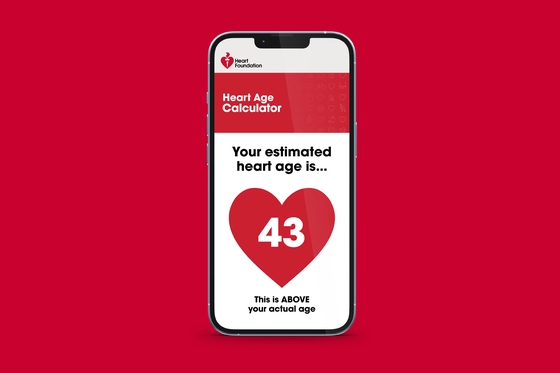
It’s time: Australia primed for first-ever heart disease screening program
Tuesday, 2 April 2024
Heart Foundation makes 2024-25 Federal Budget Submission for life-saving and evidence based targeted national screening program
It’s time for Australia’s first-ever targeted heart disease screening program.
The evidence is in: Australia has record levels of Heart Health Checks, there is rapid uptake of a new cardiovascular risk calculator by GPs, and there’s evidence that structured targeted screening programs help boost lifesaving Heart Health Checks.
Heart Foundation Healthcare Programs Manager Natalie Raffoul said despite coronary heart disease being the leading cause of death in Australia, the onus is currently placed on individuals to voluntarily present to their GP for a preventative check.
“Yet data shows that rollout of preventative heart disease screening in general practice could prevent over 67,000 heart attacks, strokes and heart related deaths over five years,” Ms Raffoul said.
“The Heart Foundation is now urging the Australian Government to fund such a program, commencing with the design of the program at a cost of $3.3 million.”
The Australian Government has shown its desire to tackle Australia’s leading cause of death with a temporary extension to Medicare subsidised Heart Health Checks, support for new CVD Risk Prevention Guidelines, and funding for one of Australia’s largest targeted heart disease screening trials in general practice.
Now, the final piece of the cardiovascular disease prevention puzzle is in sight: Australia’s first targeted heart disease screening program that serves as an ‘early alert’ to high-risk Australians.
Why do we need a national cardiovascular screening program?
“Heart disease takes the life of over 18,000 Australians each year, yet it is largely preventable if risk factors are picked up early enough,” Ms Raffoul said.

Heart disease takes many decades to develop before showing any symptoms. A screening program helps identify Australians at high risk of having a heart attack early before they develop irreversible disease.
Natalie Raffoul, Heart Foundation
Healthcare Programs Manager
Ms Raffoul said the benefits of screening programs were clear and Australia already had in place such programs for a number of chronic diseases, including some cancers.
“It’s now time to establish one for heart disease so we can more seriously address a disease that is tragically our nation’s leading cause of death,” she said.
It will ensure that after a certain age, at-risk Australians are formally invited by their general practice to have a Heart Health Check and that they receive support and management for their heart disease risk factors early.
Backed by evidence
The results of a recent first-phase study by the Heart Foundation showed promising results - a simple, targeted heart disease screening program could boost the uptake of Heart Health Checks, giving at-risk Australians the early warning they need to take action before heart disease develops.
The study conducted by the Heart Foundation in conjunction with 200 GP clinics showed that at-risk Australians are more than 14 times more likely to attend for a check-up if recalled by their GP.
How much would it cost?
The Heart Foundation is advocating for a sensible approach to screen Australians most at-risk. An up front investment of $3.3 million from the Australian Government to design the program would be required.
What do the numbers show?
Overwhelmingly, GPs, nurses and general practice clinicians have embraced the new CVD Risk Prevention Guideline, accessing the new calculator which has the most sophisticated risk-prediction algorithm yet seen in Australia, and used almost 700,000 times since introduced last July.
The promotion of this tool to GPs has also encouraged a dramatic increase in the uptake of Medicare-subsidised Heart Health Checks which have, as of the latest MBS data, now passed 613,000 checks.
In August 2023, the month following the launch of the new calculator and Guideline, MBS Heart Health Checks were undertaken a record 19,000 times that month, the highest level of uptake recorded since the Medicare item was introduced in 2019.
You might also be interested in...

Time to book a Heart Health Check?
A Heart Health Check with your GP will help you understand your risk of having a heart attack or stroke in the next 5 years and what you can do to prevent it.

Is your heart feeling your age?
Could you be at risk of heart disease? Get your estimated heart age now.

New study finds targeted cardiovascular screening program effective in Australia
A Heart Foundation pilot program that recalls at-risk Australians via a text message from their GP clinic, is being seen as a potential lifesaver.
Last updated02 April 2024